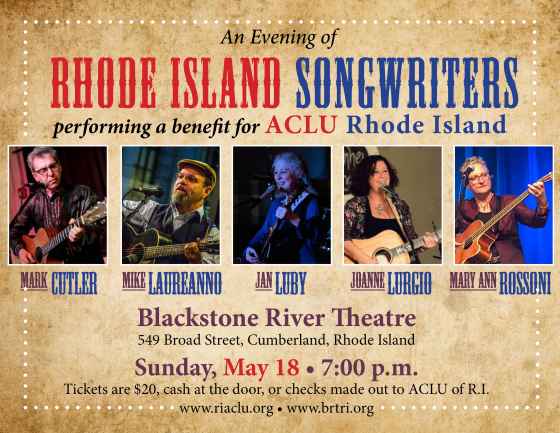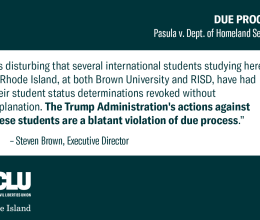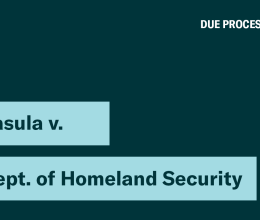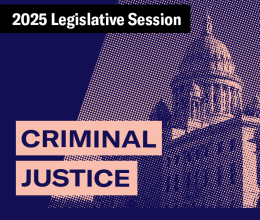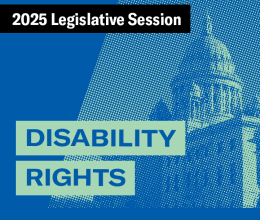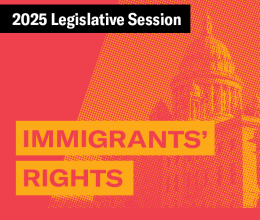The ACLU of Rhode Island and the Rhode Island Disability Law Center have sent a letter to every police chief in Rhode Island urging them to ensure their policies comply with federal anti-discrimination laws regarding accommodations for people who are deaf or hard of hearing. The letter was prompted by the organizations' recent settlement of a federal lawsuit on behalf of Woonsocket resident David Alves. In July 2015, Alves, who is profoundly deaf, was unlawfully arrested and detained overnight by Woonsocket police and was not provided an interpreter or any other services to allow him to communicate.
As part of the settlement agreement, the Woonsocket Police Department agreed to adopt and implement a detailed policy that provides guidance to officers on how to meet their legal obligations in working with people who are deaf or hard of hearing. Among other provisions in the settlement, the Department also agreed to train staff on how to obtain an interpreter and on best practices in working with people who are deaf of hard of hearing.
The letter sent this week to all of Rhode Island’s police chiefs, urges them to review their practices and policies to ensure they are in line with federal anti-discrimination laws. The letter notes that many Departments' existing policies may be out of compliance due to recent changes to federal regulations and innovations in communication technologies. The letter includes a number of resources Departments can access for guidance on reviewing or updating their existing policies.
"We sued Woonsocket last year not only to vindicate David's rights, but also to send a clear message to Rhode Island law enforcement that they have a duty to accommodate the communication needs of people who are deaf or hearing-impaired," said Steven Brown, ACLU of RI Executive Director. "This letter is another effort on our part to encourage law enforcement to do the right thing," Brown continued.
RIDLC staff attorney Kate Bowden added: "We encourage the other municipalities to take this opportunity to bring their practices and polices into compliance to better serve Rhode Islanders who are deaf and hard of hearing."

